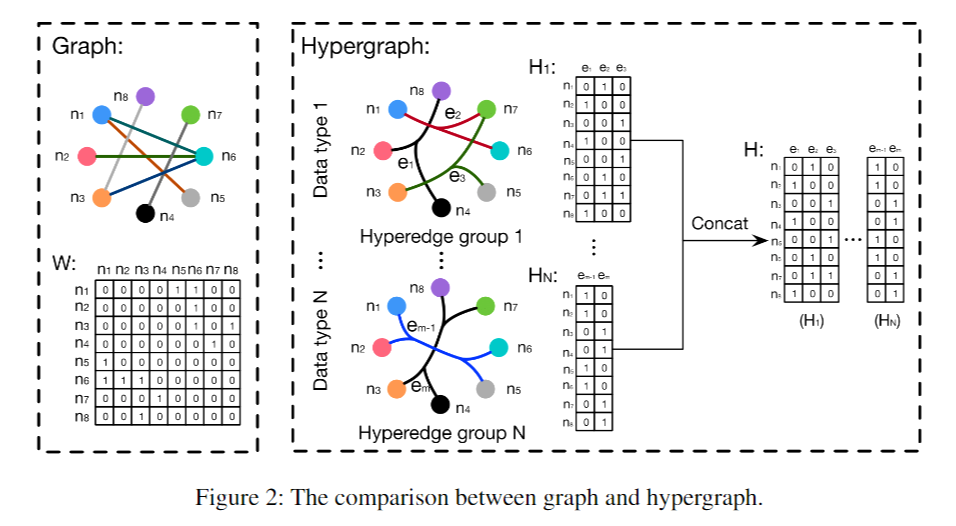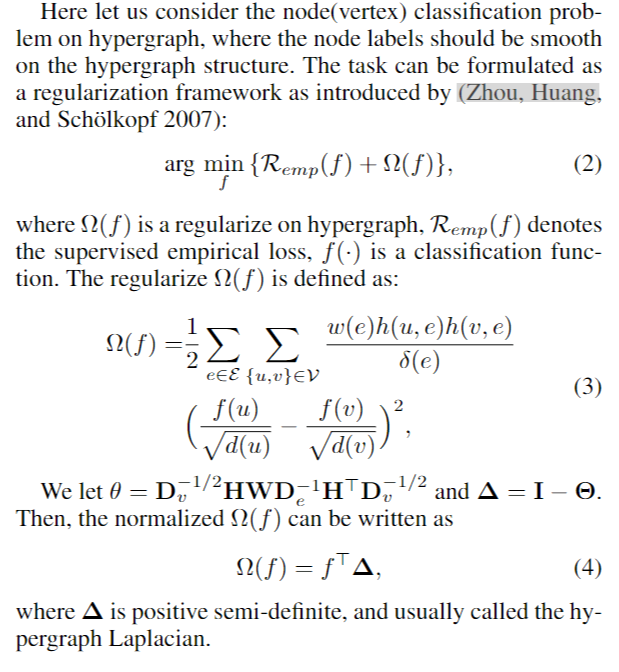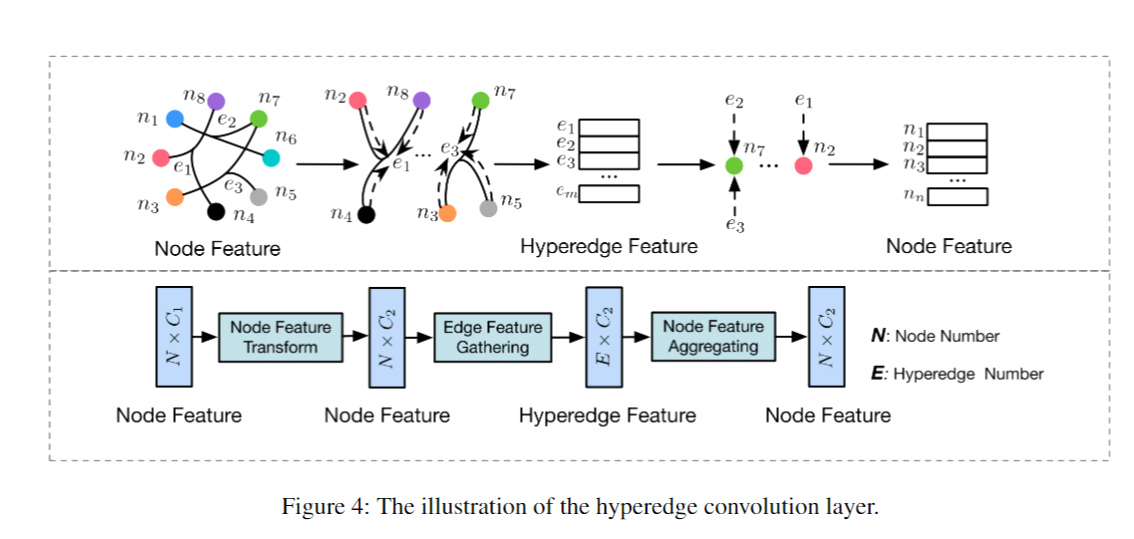HyperGraph
Hypergraph
HGNN
use the matrix to represent hypergraph
a hyperedge convolution operation is designed
can incorporate with multi-modal data and complicated data correlations(use below figure2 method to combine different data type )
Hypergraph and adjacency matrix
hypergraph-一条边可以同时连接多个点

adjacency matrix:

Method
hypergraph learning statement
hypergraph defined as \(G = (V,\varepsilon, W)\)
the degree of vertex \(v\) defined as \(d(v)=\sum_{e\in \varepsilon}h(v,e)\)——一个点与多少条边相连
the degree of hyperedge defined as \(\delta (v)=\sum_{v\in V}h(v,e)\)——一条边与多少个点相连
\(D_e\) and \(D_v\) denote the diagonal matrices of the edge degrees and the vertex degrees, respectively
example:

Spectral convolution on hypergraph

频域理解不深,要完全看懂要好久,先简单略一下。
HyperGCN
Hypergraph, a novel way of training a GCN for SSL on hypergraphs based on tools from sepctral theory of hypergraphs
主要是把hypergraph转为简单拉普拉斯图
Method

hypergraph generation
- 对图上任意边\(e\in E\), 令\((i_e,j_e):=argmax_{i,j\in e}|S_i-S_j|\) ,即返回同一个边上距离最远的两个顶点表示\((i_e,j_e)\)为随机,切断点的联系。
- 为剩下的边添加权重,权重为hyperedge的权重,构造简单的邻接矩阵。
- 归一化计算拉普拉斯矩阵
GNN
利用带权重的拉普拉斯矩阵计算GCN